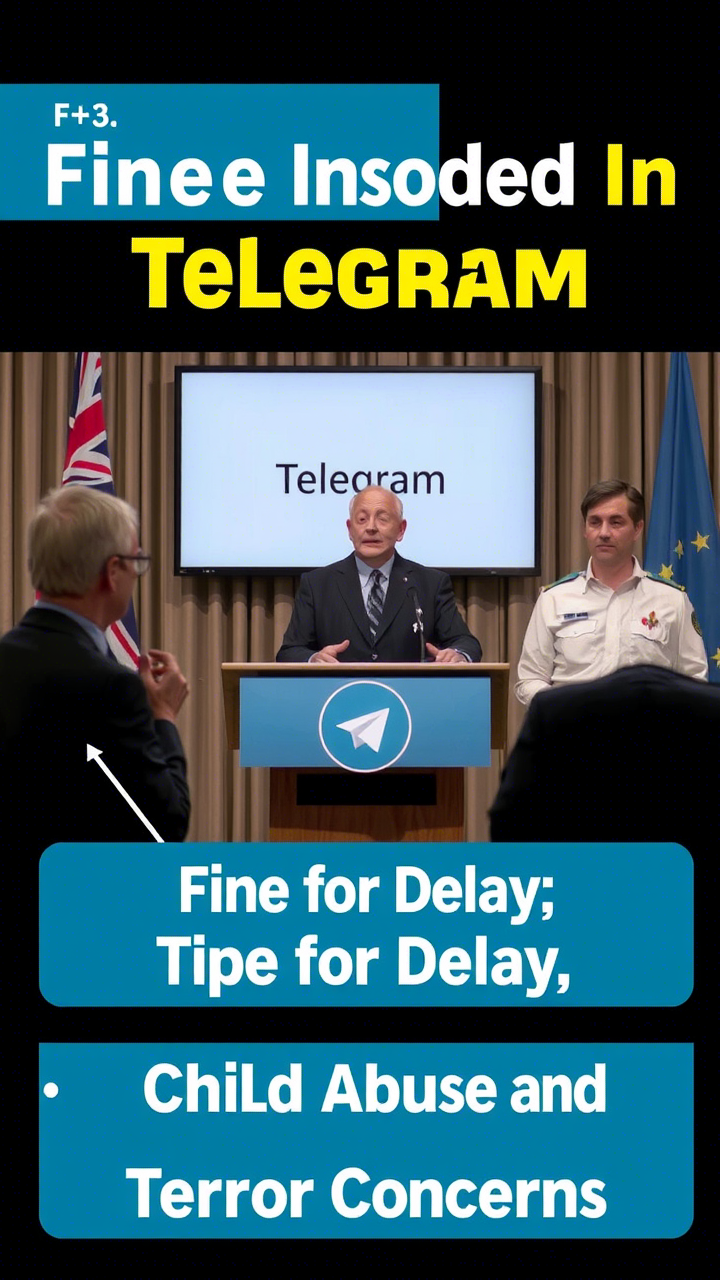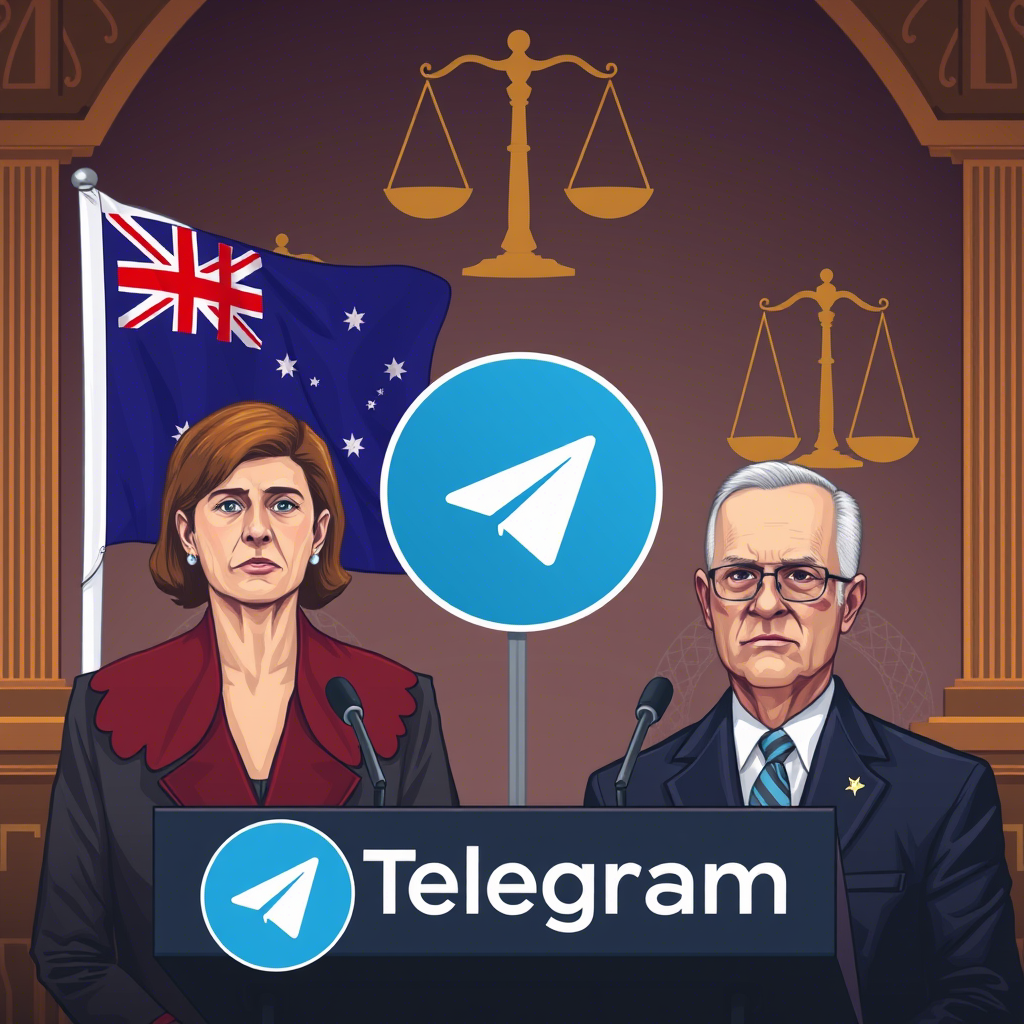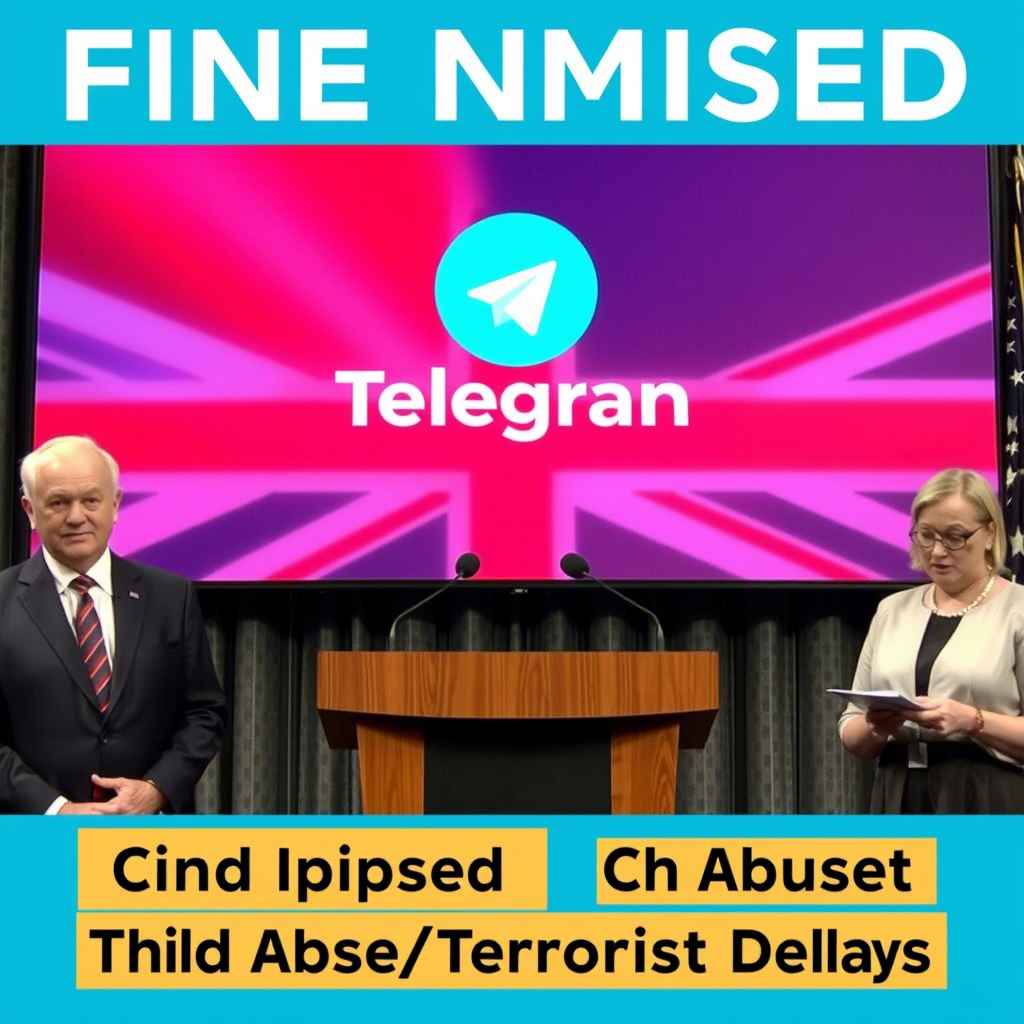In recent years, the global conversation around online safety has intensified, particularly concerning issues such as child exploitation, terrorism, and the spread of harmful content. Governments worldwide are increasingly holding tech companies accountable for their role in combating these challenges. In a landmark decision, Australia has taken action against Telegram, one of the world’s largest messaging platforms, for failing to adequately respond to requests related to child abuse and terrorist activities. This move underscores the growing pressure on technology firms to prioritize user safety and cooperate with authorities.
The Context: A Growing Concern Over Online Safety

The internet has revolutionized how people communicate, share information, and interact globally. However, this digital transformation has also created new avenues for criminal behavior, including the distribution of child exploitation material (CEM) and the promotion of extremist ideologies. Platforms like Telegram, which offer end-to-end encryption and anonymity features, have inadvertently become safe havens for individuals engaging in illegal activities.
Australia, known for its proactive stance on cybersecurity and online safety, has been at the forefront of addressing these concerns. The country enacted the Sharing of Abhorrent Violent Material Act 2019 and the Assistance and Access Bill 2018 , both aimed at compelling tech companies to assist law enforcement agencies in preventing and investigating serious crimes. These laws reflect Australia’s commitment to ensuring that no platform remains immune to accountability when it comes to safeguarding citizens.
Despite these legislative measures, some companies have been slow to comply with government demands. Telegram, in particular, has faced criticism for its reluctance to engage with authorities on matters involving child abuse and terrorism. This resistance culminated in Australia imposing a significant fine on the company—a move that sends a strong message to other tech giants about the importance of cooperation.
Why Was Telegram Fined?
The Australian government fined Telegram after the platform repeatedly delayed responding to official requests regarding child exploitation and terrorist-related content. According to reports, authorities had sought assistance from Telegram to identify users sharing CEM and those involved in planning or promoting acts of terrorism. However, Telegram’s responses were either incomplete or unreasonably delayed, frustrating efforts to track down offenders.
Telegram’s founder, Pavel Durov, has long championed the principles of privacy and free speech. While these values resonate with many users, they can sometimes conflict with legal obligations to prevent harm. Critics argue that Telegram’s emphasis on protecting user data often overshadows its responsibility to address pressing societal issues, such as child abuse and terrorism.
The fine levied against Telegram is not just punitive; it serves as a deterrent for future noncompliance. By taking this step, the Australian government aims to reinforce the idea that even encrypted messaging services must balance privacy with public safety. As Justice Minister Mark Dreyfus stated, “No company should be allowed to operate above the law, especially when innocent lives are at stake.”
Telegram’s Response and Stance on Privacy
Following the announcement of the fine, Telegram issued a statement defending its actions. The company argued that its commitment to user privacy and encryption makes it challenging to monitor or intervene in individual communications without compromising these core principles. Telegram further emphasized that it does not store metadata or personal information about its users, making it difficult to provide detailed insights into specific accounts.
While Telegram acknowledges the gravity of child abuse and terrorism, it contends that blanket surveillance or backdoor access would undermine the very foundation of its service. Instead, the company suggests enhancing collaboration through technological solutions that respect privacy while enabling targeted interventions. For instance, Telegram proposes developing algorithms capable of detecting harmful content without violating encryption protocols.
Critics, however, remain unconvinced by Telegram’s arguments. They point out that other messaging platforms, such as WhatsApp and Signal, have found ways to work within regulatory frameworks without sacrificing user trust. Moreover, critics argue that Telegram’s lenient approach to moderation has contributed to its reputation as a haven for illicit activities, undermining its claims of being a responsible platform.
The Broader Implications of This Decision

Australia’s decision to fine Telegram highlights the ongoing tension between privacy rights and public safety in the digital age. On one hand, users value the freedom and security offered by encrypted messaging apps. On the other hand, governments have a duty to protect their citizens from harm, whether it stems from cybercrime, terrorism, or child exploitation.
This case raises several important questions:
- Where Should the Line Be Drawn? How far should tech companies go in cooperating with governments without infringing upon user privacy? Striking the right balance requires careful consideration of ethical, legal, and technical factors.
- Global Standards for Online Safety With varying regulations across countries, there is an urgent need for international standards governing how tech companies handle sensitive issues like child abuse and terrorism. Such standards could help streamline compliance processes and ensure consistency in enforcement.
- The Role of Encryption End-to-end encryption is a powerful tool for protecting user data, but it also poses challenges for law enforcement. Finding ways to preserve encryption while allowing lawful access in extreme cases remains a complex problem requiring innovative solutions.
- Accountability for Tech Companies The Telegram fine demonstrates that governments are willing to impose consequences for noncompliance. Other nations may follow suit, increasing pressure on tech companies to adopt more transparent and cooperative practices.

Lessons Learned and Moving Forward
For Telegram and similar platforms, this incident serves as a wake-up call. Simply prioritizing privacy over all else is no longer sufficient in today’s interconnected world. To maintain legitimacy and avoid further penalties, these companies must demonstrate genuine efforts to combat harmful content and collaborate with authorities.
Here are some key takeaways for tech companies operating in Australia and beyond:
- Proactive Engagement: Establish clear channels of communication with law enforcement agencies to facilitate swift responses to urgent requests.
- Investment in Technology: Develop advanced tools and systems to detect and flag potentially harmful content without compromising encryption.
- Transparency Reporting: Regularly publish transparency reports detailing the types of requests received and actions taken to address them.
- User Education: Educate users about responsible usage and encourage reporting of suspicious activity to create a safer community.
At the same time, governments must recognize the complexities faced by tech companies in balancing competing priorities. Collaborative approaches, rather than adversarial ones, are likely to yield better results. Encouraging dialogue and fostering mutual understanding can lead to the development of effective strategies that benefit everyone.
Conclusion: Toward a Safer Digital Future
The Australian government’s decision to fine Telegram marks a pivotal moment in the global debate over online safety. It underscores the critical importance of striking a balance between privacy and protection, particularly when dealing with heinous crimes like child abuse and terrorism. While Telegram’s commitment to privacy is commendable, it cannot come at the expense of public safety.
As we navigate this evolving landscape, it is essential for all stakeholders—governments, tech companies, and users—to work together toward a shared vision of a safer digital future. By embracing innovation, promoting accountability, and prioritizing human dignity, we can build platforms that empower individuals while safeguarding society as a whole.
The journey ahead will undoubtedly involve challenges and compromises, but with determination and collaboration, we can ensure that technology continues to serve as a force for good in our increasingly connected world.

